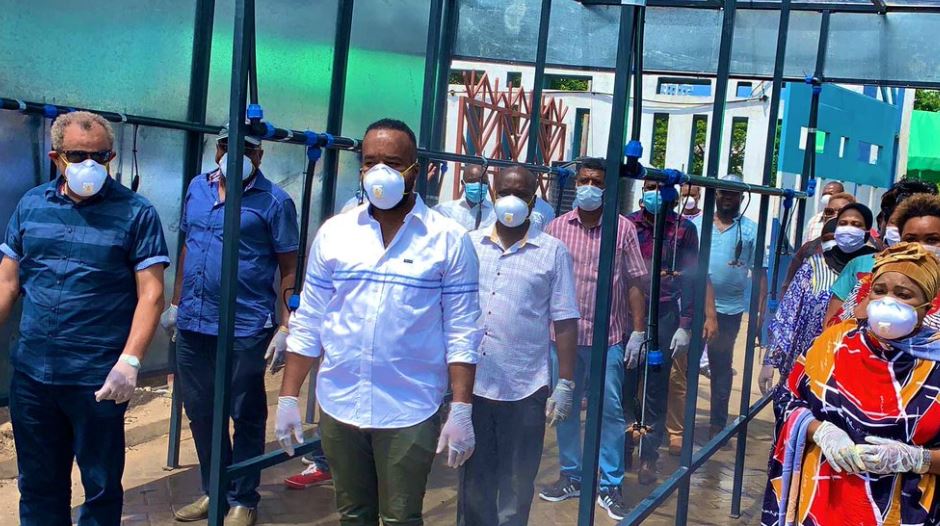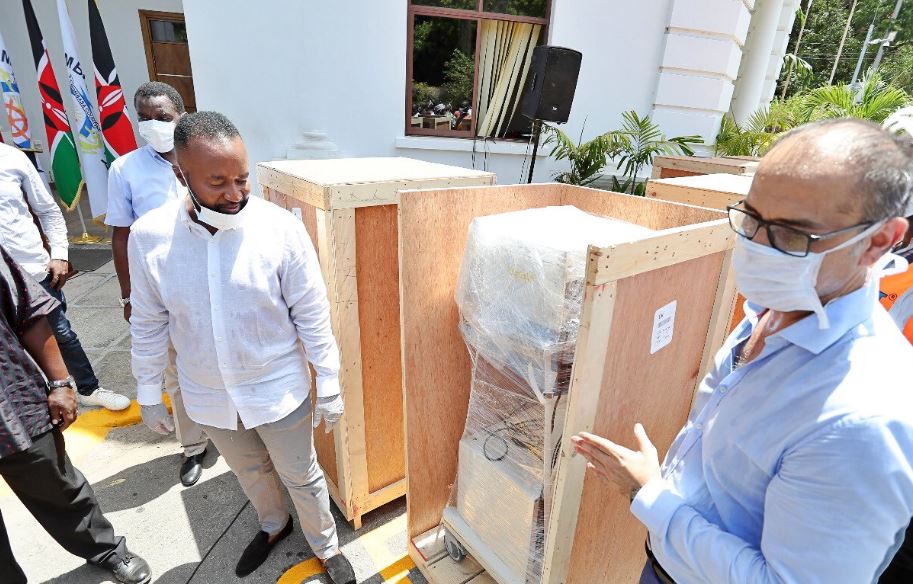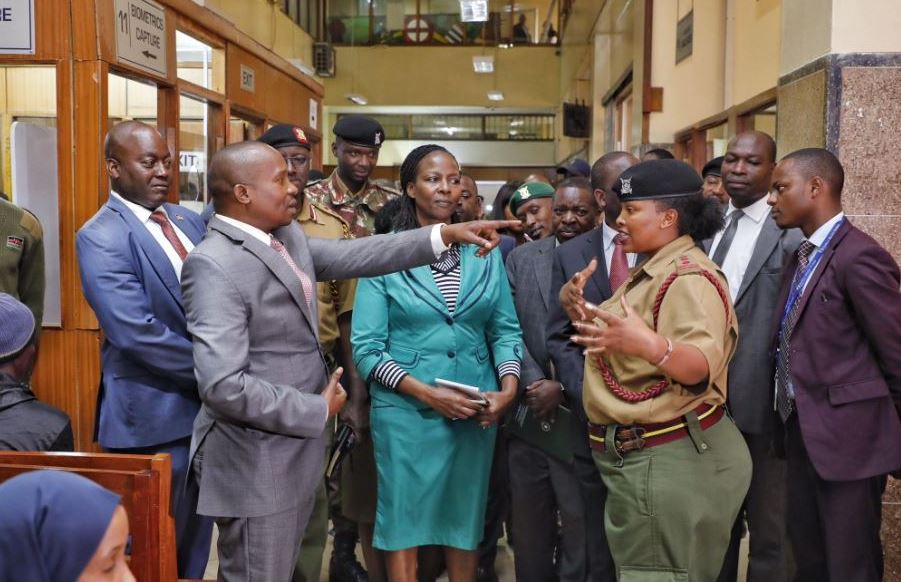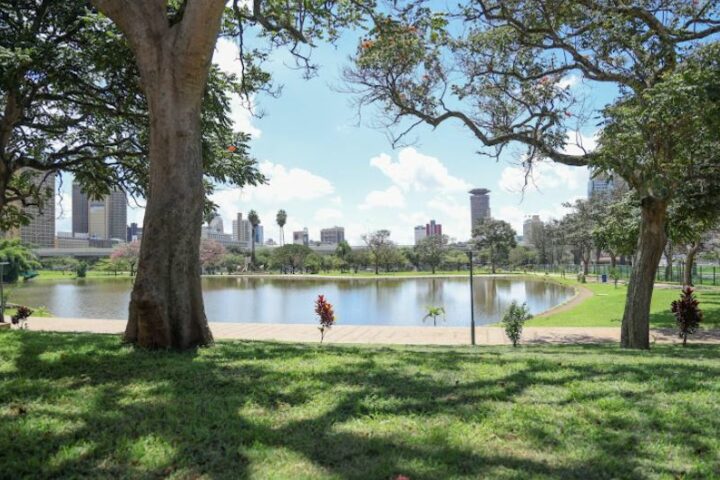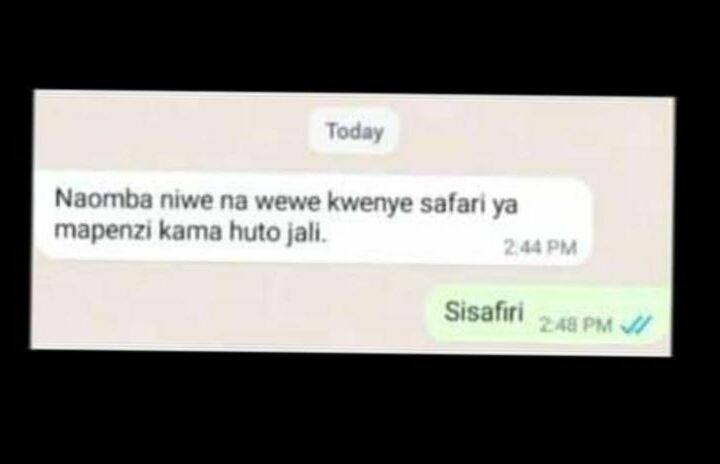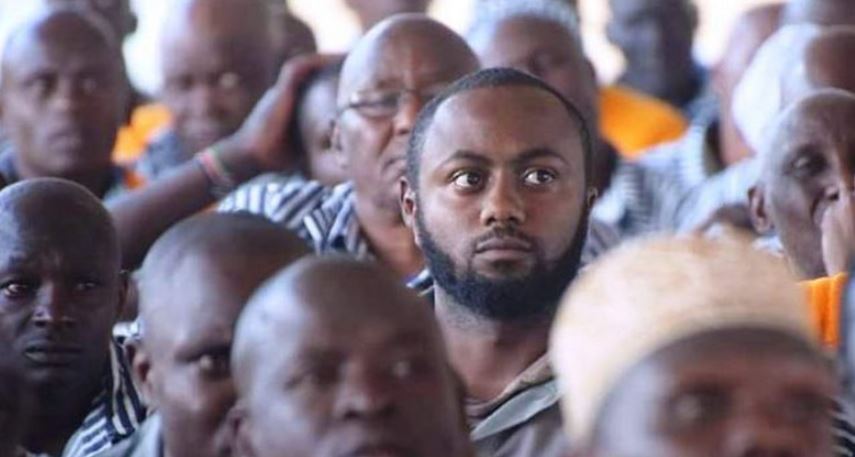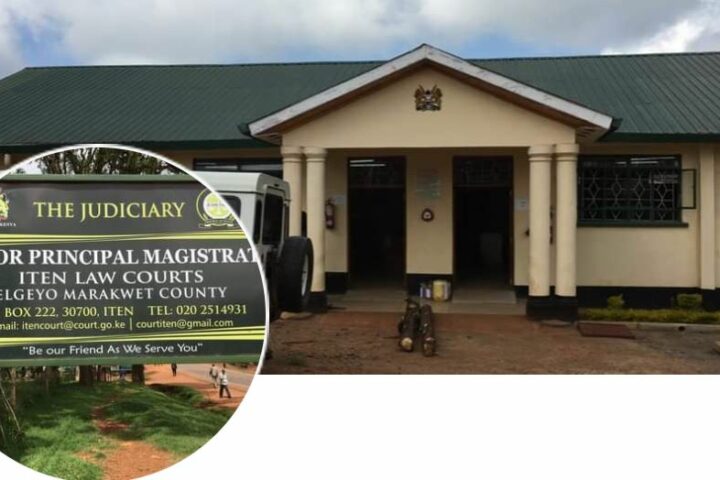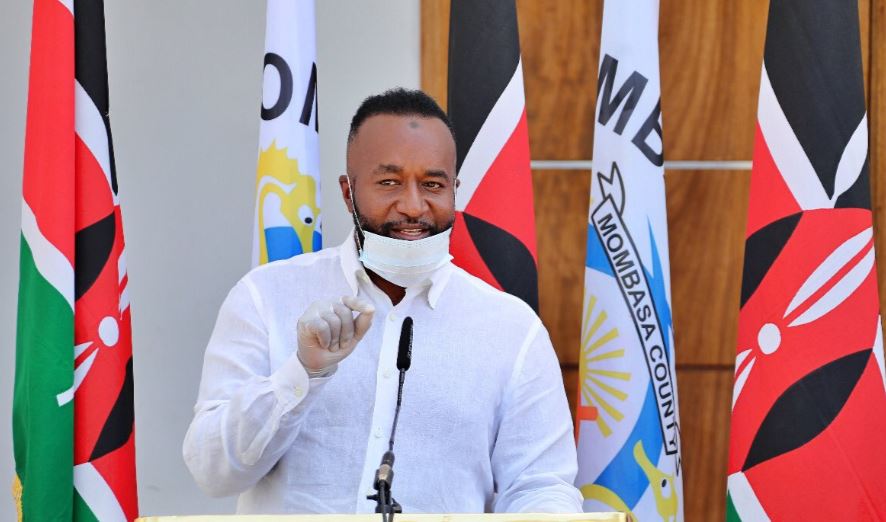
Mombasa is now in isolation, but you’ve been advocating for a total lockdown…
Isolation is a good beginning. Obviously, with the battle against Covid-19, we have to progressively evaluate the situation and take more measures that we deem effective.
We’ve had people who work in Mombasa but live in Kilifi and Kwale, and they’re wondering about the fate of their jobs and so on.
People must understand that it is not going to be easy. It’s going to be tough, there’s going to be a lot of sacrifices that each one of us will have to undertake. Like, stay at home when we don’t want to, not necessarily being able to report to work.
That is why the government at the national level and the county level is having a conversation about how we’re going to cushion these people who will be affected economically. The only way we’ll succeed with this battle against this pandemic is to stay at home, to avoid spreading it by going around easily.
Because that’s the only way we spread it; if we continue to go around as we normally do then that means we’re spreading it. It may be tough, it may be difficult, but really, this situation has to be managed in that manner.
There appears to be a lot of naysayers, saying, this Covid-19 story, just forget about it, we need to live our lives…
Let me tell you, we don’t have the human resource capacity, the medical equipment, and the preparedness that other cities in Europe, Asia and the Americas have yet this disease is devastating them. For me, as a leader, this is not the time for populist statements, this is a time to stand up and say, you know what, this has to be done.
What, precisely, are you doing?
In Mombasa, we’ve been mapping out the families that we know are vulnerable. As a government, we are trying to put up measures together with corporate players to try and cushion these people. We are talking to institutions, employers and telling them, you know what, we need each other at this point.
How many vulnerable families have you mapped out so far?
We have so far 227,404 families that we consider vulnerable. With an average of around five people per household, we are talking about more than one million people. We aim to provide the basics like water, medication and food for just about a month and then see how it’s going to be going forward.
Within the next two weeks, the holy month of Ramadhan will begin. What plans does your government have to make sure that those of us who will be fulfilling the demands of the holiday are catered for?
In Mombasa, Muslims all over the city have had a programme for feeding people during Ramadhan. I know of a family, for example, that feeds 22,000 families during Ramadhan. My humble appeal to everybody today is about humanity. Let us forget about faith. We want to make sure, Ramadhan or not, that every needy family in Mombasa, whether Muslim, Hindu, Christian or of whatever religion, has help or will get help.
You’ve been mobilising resources towards this. How much have you raised so far?
We are County 001, my friend! We have a lot of philanthropists and generous people, people who are committed to helping each other, which I’m grateful for. By Monday, we had raised almost Sh100 million. Our target is food worth Sh700 million. The county government is contributing about 200 million worth of food. Obviously, we’re asking the national government to step in. We’re hoping maybe we can get Sh300 to 400 million, whatever it is. And then the deficit is where the private sector will come in.
How were you able to do this?
We’re already seeing barns where food is being stores, sanitation ports at the ferry, taps being put in place. Obviously these are things that were planned.
Let me tell you, the first thing you do as a leader is to bring everybody to the table, bring everybody on board. I formed a united front comprising business, corporate and political leaders, civil society and the clergy. I sat them down and said, “We are in this situation. We must stand together. Also, my county commissioner, Gilbert Kitiyo, with whom I co-chair the committee, is very efficient and effective. That, for me, is the success story. When we wanted to do the water station at the ferry, we immediately had a solution.
What have you learnt as a leader since this pandemic swept into our shores?
We were having a conversation yesterday. Mungu analeta kitu na mtihani lakini saa zingine pia ina baraka zake. There are lessons that we have learned as leaders, as business people. Maybe going forward, when we get out of this, we will have learned that our unity can make a big difference. For example, in Mombasa, right now, we’re seeing good gestures.
People are walking in with contributions. People are committed, and there is a lot of goodwill. It’s just us as politicians who sometimes forget ourselves. Indeed, we can pull this country together. Look at the situation today. We can speak one language, understand each other. I have brought my opponents to the table. People who disagreed with me, I’ve challenged and they have responded.
How are you collaborating with private hospitals?
For now, we’re working on building capacity. I told private hospitals in Mombasa that we must build a fully-equipped hospital outside our normal operations to deal with Covid-19 and asked them for contributions in terms of medical equipment and human resource. So, we do it collectively, so that when there’s a patient, we take them to the Covid Hospital.
This is how other countries have succeeded. We are looking at turning the Technical University of Mombasa into a 500-bed hospital. We want to create 50 ICU care beds and facilities at the Coast General. So, when you need Intensive care, then we move you there. We have to coordinate with private hospitals, ambulances, to try and truly isolate Covid patients in one hospital to properly look after them.
How many doctors, nurses and medical workers would you need? What else do you need to get this working?
We are asking our private hospitals, maybe if we closed a few of our wings, moved the equipment… I see, for example, Mombasa Hospital has had a Covid-19 wing, Aga Khan has had a Covid-19 wing. So, we start by moving all these equipment, resources to one point. We shall then be able to evaluate what we will need.
We’ve recently invested around Sh140 million in new equipment which, if combined with that from private hospitals, should be enough. We have advertised for 100 new staff. As a county, we’re ready to shelve all our projects, but we can’t fall short on doctors and nurses. We’ve even spoken to retired doctors and told them to be on standby in case we’ll need them.
A great deal of the economy of Mombasa was dependent on maritime commerce activities at the port. This has diminished. How is this going to affect the measures you’re putting in place?
As we speak, economics experts drawn from the county are trying to figure out how we will get our economy revamped when this crisis blows over.
There were discussions about stopping ferry services to isolate the county and limit the spread of the virus. What’s the position on this?
We went to the ferry and looked at the situation. Sometimes as many as 30,000 people cross per hour. Imagine people queuing for 3km. But what we could do was try and create a safe environment for them. We’re trying to work out how to guide people on distancing on the ferry, but they are not applying this on the queues. We’ve done disinfection at the ferry. We’re producing 1.2 million face masks that we want to distribute for free and ask everybody to wear them. But eventually, itabidi watu wajipange.
One specific thing; with maternal care, and with the curfew in place, what is in place for emergency services these mothers may need?
Essential services and movements are allowed under curfew, and this is essential. We are now redirecting all our ambulances to 24-hour use and stationing them in sub-counties, so that everybody that needs help gets access. Even county coloured vehicles have been instructed to do the same. When you see a county vehicle, that’s what it’s there, for now, ask for help.
How are the movement restrictions getting enforced?
We have really advocated against police brutality. I’m grateful that after the ferry incident, there hasn’t been another incident. But the point is, we are telling our people to abide by the regulations. Understand that this is for you.
We will not get to a point where we have to use force to get you to go back home. Everybody should understand that they need to be at home. We will continue passing the message. We depend on you as well to pass on the message. It’s been done for the good of all of us. Let’s not wait to see rungus.
